6 of the Scariest Things about Writing a Book
Troubleshoot Your Writing Haints and Reach Your Ghouls
When I studied psychology in college, I learned that one of the methods for helping treat phobias and extreme anxieties is exposure therapy. Now, I don’t have any legitimate phobias—unless my intense repulsive response to the Burger King mascot can be classified as a phobia... *chills* I hate that guy—but there is one thing I do every single day terrifies me more than the thought of a creepy masked man looming in my morning window...
Writing. It can be downright terrifying.
Deciding to write a book was one of the scariest things I’d ever done in my life, but in order to get over my fears, I knew the only thing I could do was just that: write. To this very day, there are aspects of novel writing that I struggle with, and today I’d like to share them with you.
My goal is to expose six of the scariest things about writing a book so that you might feel validated if you recognize any that overlap your own. After each aspect, I’m offering a constructive approach to overcoming these fears so that you can achieve your writing goals.
But first, please note that the information contained in this article is meant to be educational and is not intended as a substitute for the advice of health care professionals.
Time
Who has the time to do anything outside of work, school, family, and all the responsibilities required of each? Finding time to write (even a whole book) can be done. In my post Manage Your Busy Calendar... and STILL Have Time to Write, I offer several examples of how you can carve out time for writing from even the busiest schedule.
In fact, as I’m writing this, I only have 30 minutes
before I have to switch to Muggle Job mode. Because that’s 30 minutes to write, I’m typing out notes for this article you’re reading on my phone while having my coffee.
Approach: Schedule time on your calendar as you would a meeting or appointment, and then set boundaries for others so that they respect your time and don’t interrupt.
Comparison
What’s the saying? “Comparison is the thief of joy.” The internet credits the quote to Theodore Roosevelt, and although I’m not sure he was the first to say it, I do believe it’s so popular because it’s true. As cliché as it might’ve become, the underlying lesson is especially important to creative people like you and me.
Comparing yourself, your work, your progress, your outcomes with other writers will steal the joy right out of the process.
Want me to let you in on a secret?
Lean in so I know you get this: you might have a similar idea as someone else, but how you say it will be unique to you. Your writer’s voice—the way you use words and style and tone to shape sentences into story—can’t be replaced by anyone else.
Let’s look at an example: both Anne Rice and Stephenie Meyer wrote about vampires. Both of their work was successful. Both of them have unique voices and unique audiences, some of whom overlap. There is room for everyone.
Approach: Try celebrating the similarities in other authors’ work and your own. Invite comparison as a gauge for growth or a measure of success. Don’t let it steal your joy.
Fear
What if I fail? What if all the work I’ve dedicated toward writing this book goes nowhere? What if people *gasp* actually read my book?! What if they hate it?! What if Grandmama reads it, hates it, and then writes me out of her will?! What if I get a one-star review? What if I get SEVERAL one-star reviews?!
Every last one of these questions I’ve asked myself. To this very day, in fact, some of them still haunt me.
Now, here are a few questions I have for YOU:
What if you don’t even try? What if you never write a single word in your story? How might the world miss out? How could YOU miss out on all the spectacular outcomes and possibilities?
Approach: Exposure therapy. Write. Just start somewhere, anywhere. Try brainstorming and see where your thoughts stray. Margaret Atwood said, “A word after a word after a word is power.”
Editing
Nobel Prize-winning author Toni Morrison is said to have written a sentence and not moved on to the next until it felt perfectly edited. I don’t know about you, but when I’m writing a book, I don’t have the time Ms. Morrison had to dedicate to her style of editing, not while writing the first draft, at least. However, the tendency to want to make each line sound perfect resonates with me. It’s SO DIFFICULT to move forward and leave a terribly arranged sentence and keep writing through. If you want to finish the first draft of a book, however, you must shake off the anxiety to edit.
There will be time for editing. Doing so is an absolute MUST.
Just not in your first draft. Take the entire purpose of NaNoWriMo* for example: writers are tasked with penning 50K words in 30 days. That means there is little if ANY time for edits, and to control freaks like me, THAT can be dreadful.
Here’s the good news: There will be plenty of time for edits after the first draft is finished. And you know what? Writing without regard for punctuation, spelling mistakes, etc. can actually be freeing! It can feel like riding a bike for the first time without training wheels!
The even better news is in the approach...
Approach: Save all your editing energy for the second draft. That second draft, after you’ve had time to rest your eye, mind, and body, and then come back to the story? That’s when the magic of storytelling happens. Write the first draft as nasty and messy and ugly as it can possibly be. Save editing for the second go-round.
Writer’s block
Now this one is horrifying. Writer’s block happens when you don’t know what to write, how to get started, or when you’ve lost the direction you were taking your story. Writer’s block can make you feel like you’ll never find inspiration, motivation, WORDS, ever again. It can feel as if what’s been stolen is much more than joy alone, it’s one’s entire ability to do the thing one loves doing: writing.
A gut-wrenching true story:
Back in 2010, I’d spent almost a year making notes and drafting an outline for a YA book series about a guardian angel who fell in love with the human girl he was sworn to protect. At that time, I didn’t have a dedicated writing studio or office, as I have now, so my desk was shoved into the corner of the dining room. The location wasn’t inspiring at all, so I would move my computer to a lap desk and work on the sofa. One day, my phone rang, and I jumped up to go after it. I’d left it on my desk. When I stood, I forgot that my external hard drive was connected to my laptop and the gadget hit the hardwood floor and cracked like an egg.
I lost everything.
My entire story, all my photos and music and personal documents, everything was gone. My 200+ research papers for my psych degrees? Erased. This loss triggered a period of writer’s block that spanned three years. Between summer of 2010 and summer of 2013 I didn’t write a single word.
Today, I have strategies in place to tackle writer’s block from the moment it rears its ugly face. When (because it WILL surely happen) you get bitten by the writer’s block bug, there are exercises in place that can help you recover, and quickly.
Approach: One of my favorite ways of overcoming creative blocks is using my tarot cards. When battling writer’s block, I use advice bridge spreads, which I’ve included in my Shuffling Through Writer’s Block resource and The Writer’s Cross, which is my version of the classic Celtic Cross spread.
Not prioritizing self-care
I’ve intentionally saved the most important and scariest aspect of writing a book for last.
Losing yourself while writing is one of the most exhilarating sensations. Forgetting to take care of yourself while writing? Now that’s another issue entirely. In order to escape into your writing and produce your best, most inspired work, prioritizing self-care is a must.
You wouldn’t show up to a job interview in sleep shorts and a stocking cap, would you? And if you were training for a marathon, you wouldn’t eat chips and candy and fettucine Alfredo before your run, would you? Of course not. You’re no Michael Scott.
When I don’t take care of myself, my writing suffers.
And when my writing suffers, the ripple effect is lasting. Early on, when I was writing my very first book, I learned the importance—the necessity—of taking care of myself FIRST so that I might show up to my story at full creative capacity.
Approach: Prioritize your self-care. Whatever self-care looks and feels like to you, whatever is accessible to you, make it a priority over everything else. And I mean everything. We cannot do our best at [parenting, partnerships, work, writing] if we are struggling to even take care of ourselves. Remember the airplane analogy and put on your oxygen mask first. Your family, career, and story will benefit.
What’s missing?
What’s the scariest thing about writing a book to YOU? What are you most afraid of? What’s missing from this list I’ve shared with you? Do share in the comments. Other writers might also struggle with the aspects of writing you find most troublesome, and we can all benefit by sharing our experiences.
About Mandy
Amanda “Mandy” Hughes is an author and instructional designer who uses the tarot to inspire storytelling. Her book Mystic Storyteller: A Writer’s Guide to Using the Tarot for Creative Inspiration and companion tarot deck are coming soon! She also writes fiction under pen names A. Lee Hughes and Mandy Lee. Mandy lives in Georgia with her husband and four sons, two of whom are furrier than the others (but not by much). Visit her website at www.haintbluecreative.com and follow her on Instagram @HaintBlueCreative.

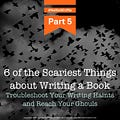


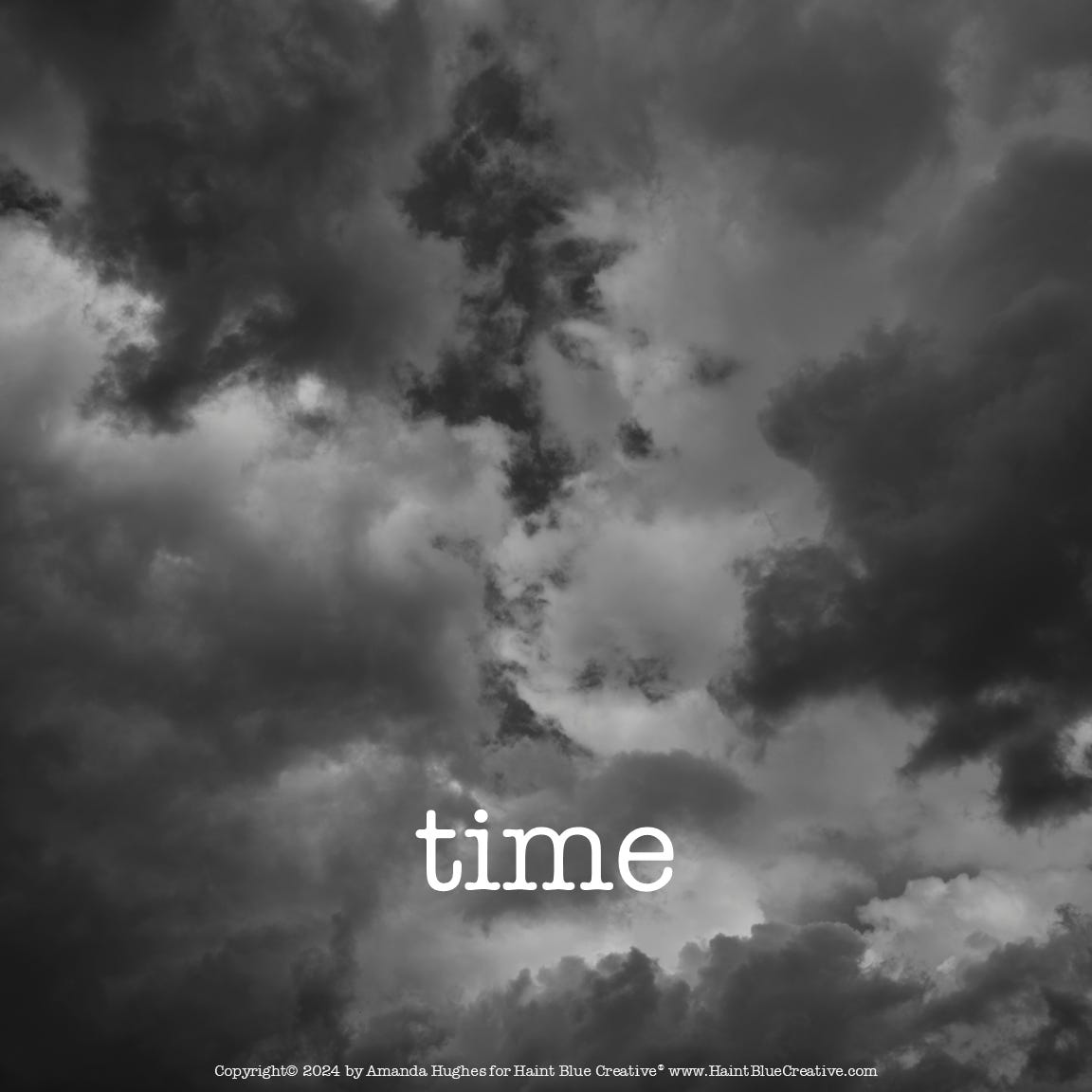
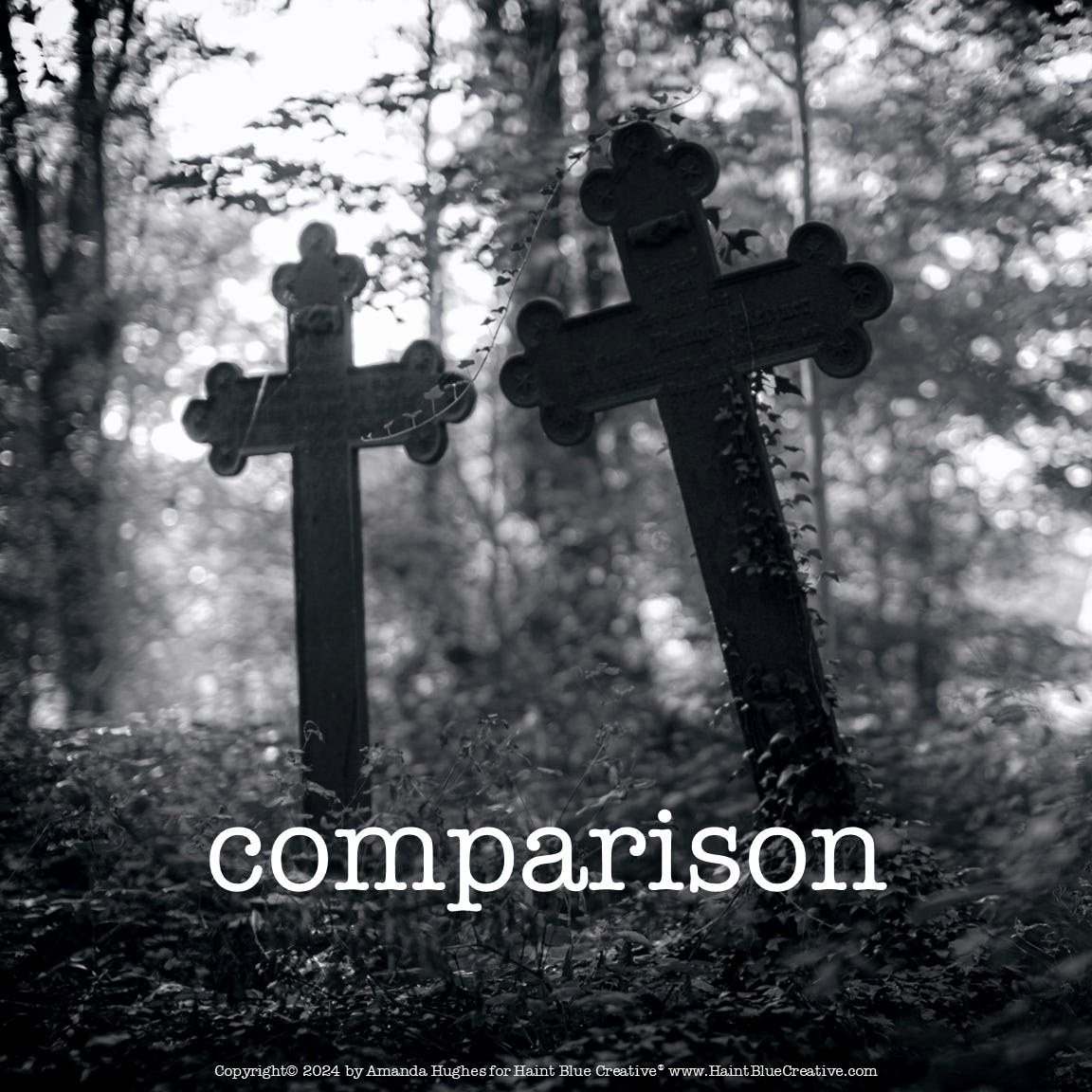
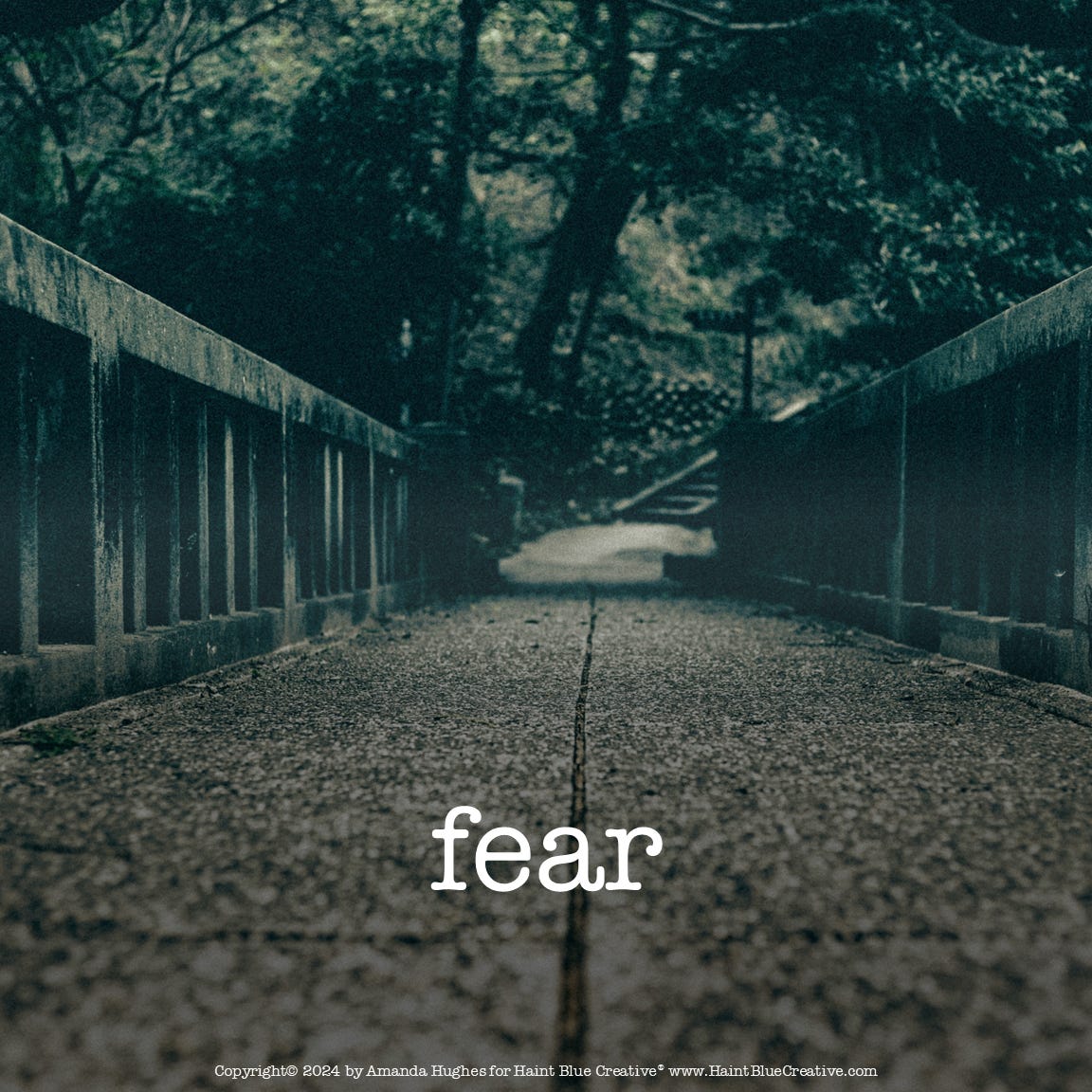
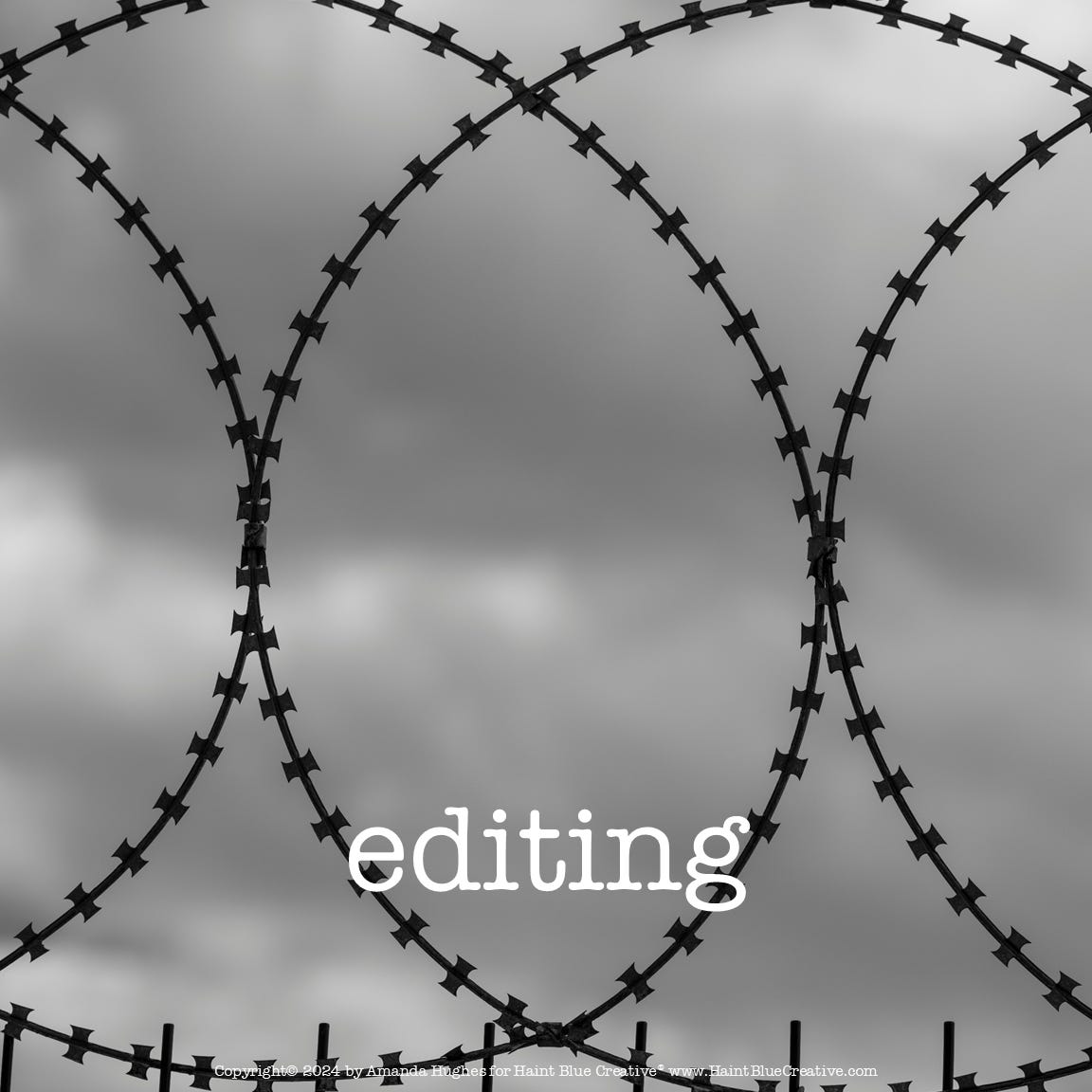
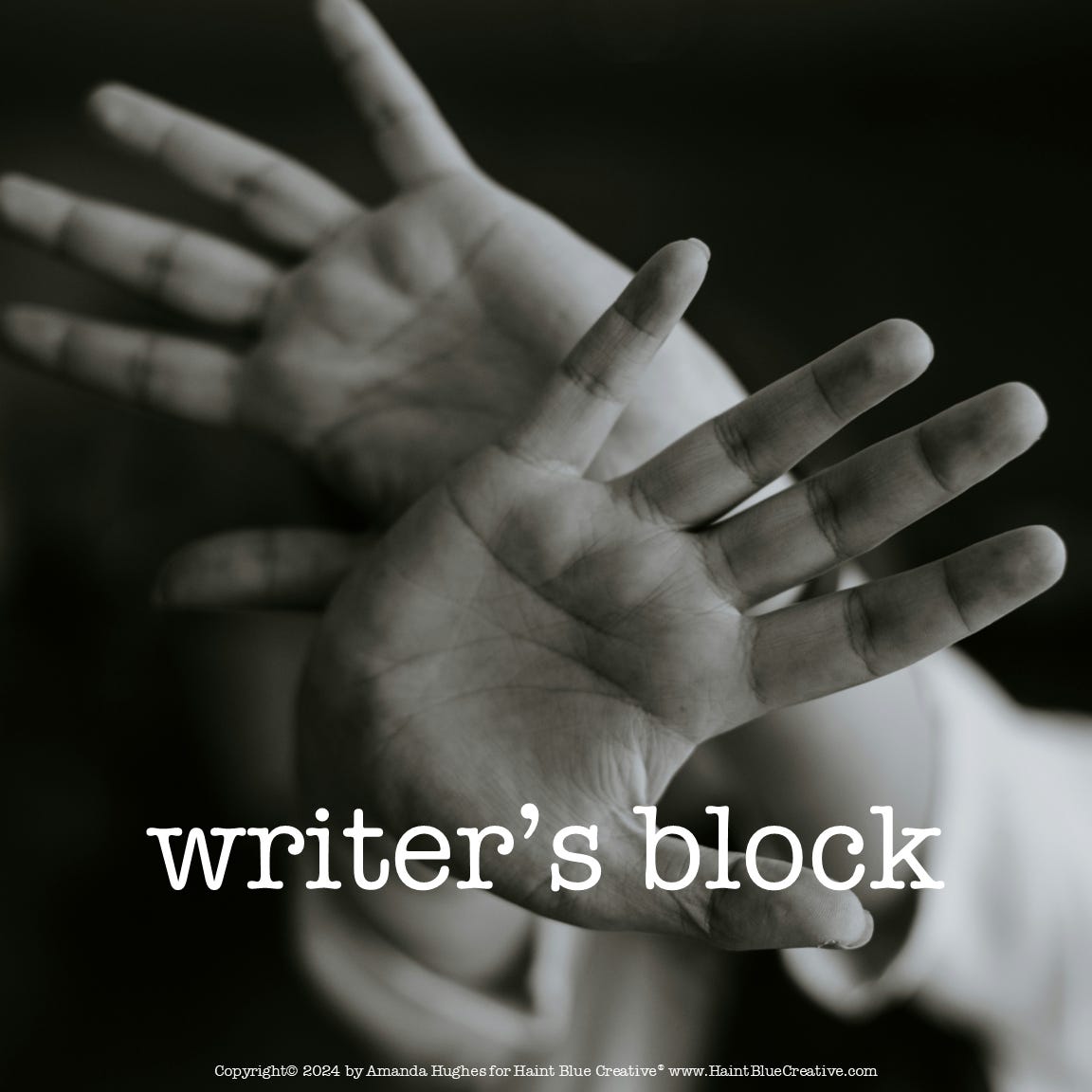
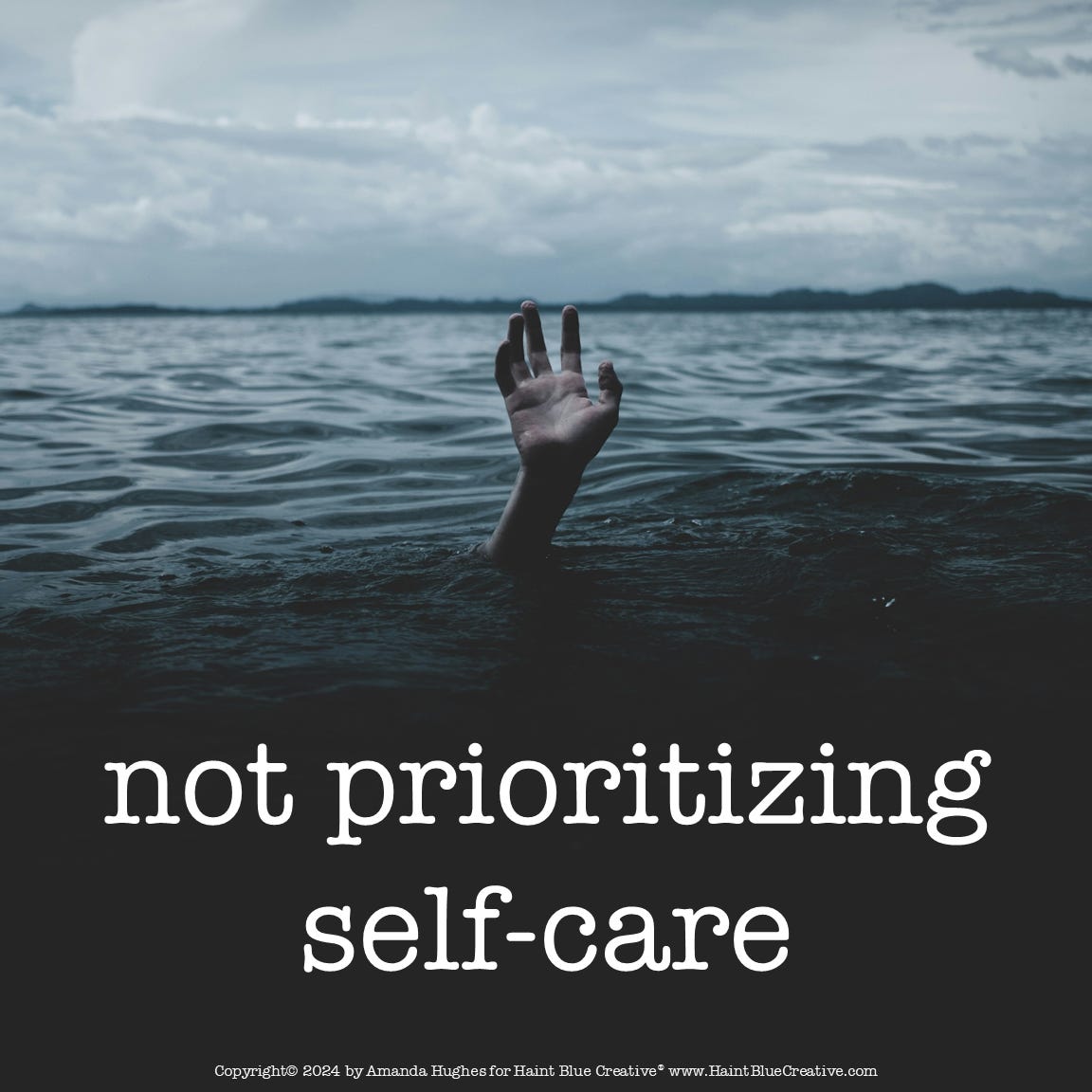
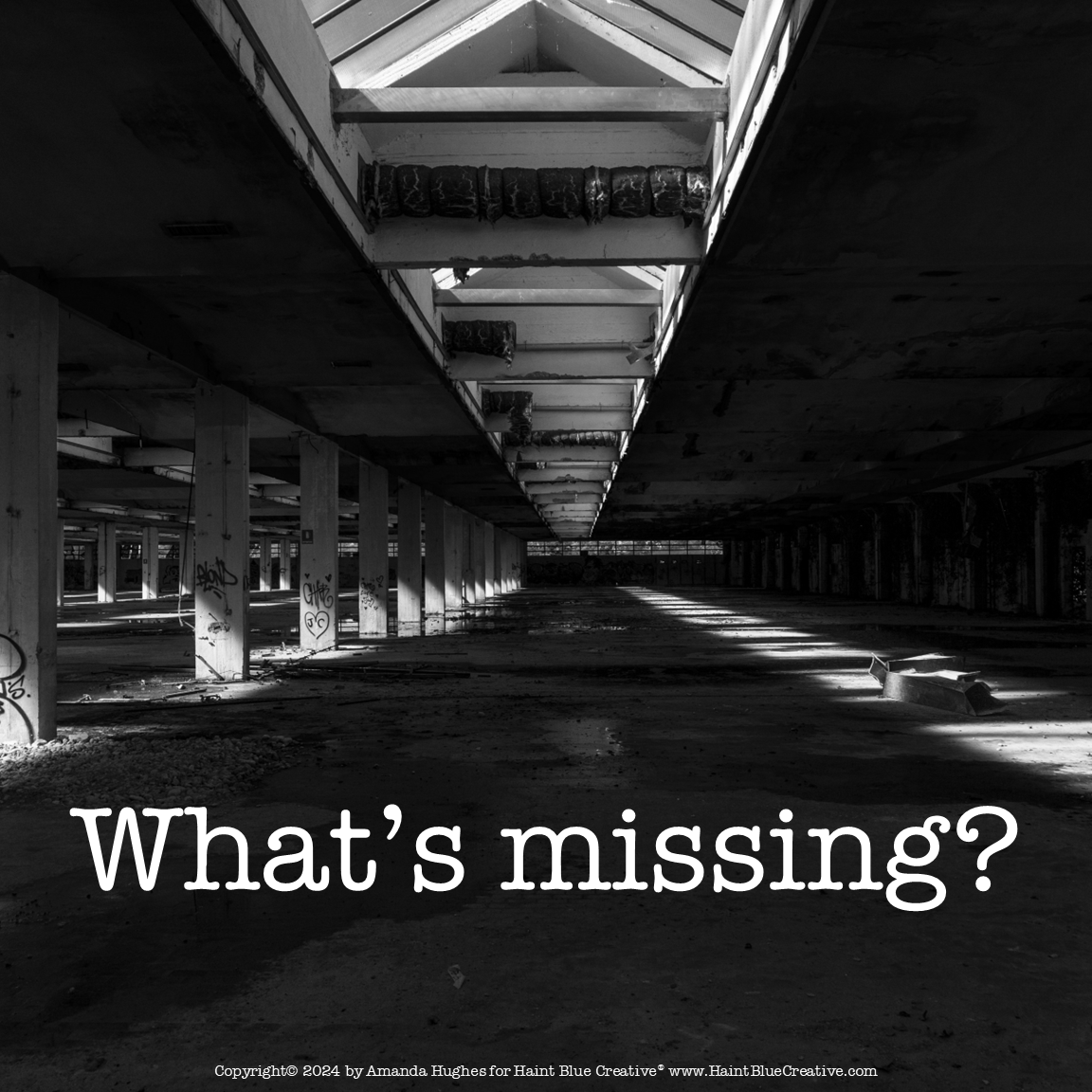
Awesome! Your posts are always so helpful. ❤️